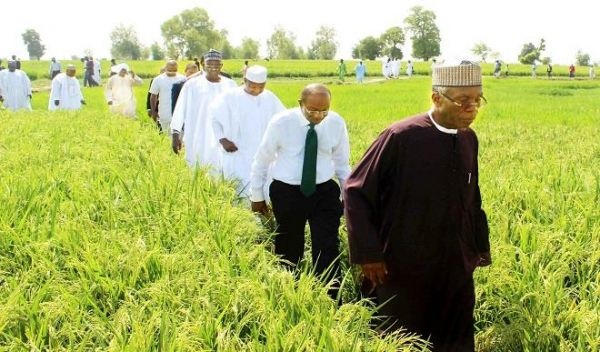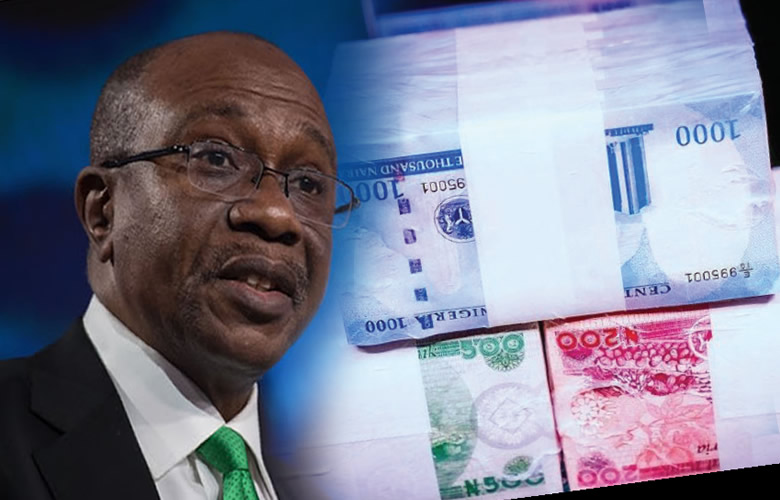Last week, figures from the United States Department of Agriculture have shown that Nigeria’s local rice production in the coming year would be under serious pressure.
Otherwise, the data projected that Nigeria’s rice production will drop from $2.48bn to $2.40bn in 2019.
This statistics tends to support the recent move by the Federal Government to compensate rice farmers to the tune of N60bn as already approved by the Federal Executive Council to be given to rice farmers to cushion the effects of flooding and herders’ attacks.
However, during its recent Gala Night held inside the Aso Rock Villa under the Anchor Borrowers Programme (ABP) designed by government through the Central Bank of Nigeria (CBN) to promote rice farming, the group, known as Rice Farmers Association of Nigeria (RiFAN), claimed they have over 12 million members producing rice in Nigeria.
They did not only talk about their membership which can be said to be the ever largest to compete with rice farmers in Thailand from where majority of rice eaten in Nigeria, rather, upon they are to receive N60bn compensation, they had the temerity to publicly announce a campaign donation of N1.2bn to one of the presidential candidate in the 2019 election.
Observers who were able to put all issues surrounding rice revolution in Nigeria are now confused on how Nigeria has 12 million rice farmers and still yet, nothing to show for it in any major market.
Another question by industry watchers is that how come a group seeking compensation from government due to attacks and flooding, suddenly generated over one billion naira in donation to a presidential candidate and the donation was accepted?
Other series of questions begging for answers include whether the N60bn compensation approved by FEC had been paid? Though an official of RIFAN at the event, claimed that their 12 million members only contributed N100 each to arrive at the presidential campaign fund, does Electoral Act as amended allows for campaign fund donation from either a group or individual to more than N100m?
If President Muhammadu Buhari accepts the donation, has he violated Electoral Act? Should an association Nigerians are yet to feel its impacts, engage in a show of money when the same body is seeking huge funding support from the government?
Business Hilights recalls that the US statistics on Nigeria Rice farming revealed that earnings from local rice production in the past three years had been on an ascending order, increasing from $2.40bn (5.3 million metric tonnes) in 2016 to $2.46bn (6.15metric tonnes) in 2017 and $2.48bn(6.8metric tonnes) in 2018.
According to the report, total amount spent on imports also increased from $1,95bn in 2016 to $2.54bn in 2017 and $3.02bn in 2018.
Now that the 2019 rice production projection is expected to be down to $2.7bn, how wise is it for the same group to make donation to a presidential candidate?
Even before the US figures emerged, in October, the Minister of Agriculture and Rural Development, Chief Audu Ogbeh, warned that Nigeria might experience a shortage in rice production due to the flash flooding that affected some major rice-producing states that month.
In his submission, he said “We are hoping that as soon as the rains seize, we are encouraging farmers to replant so that the residual moisture on the soil plus irrigation can give us another crop by the end of December or early January.
“Otherwise, we will be in serious trouble for rice, millet, sorghum and maize next year,” he said, during the inauguration of the National Agricultural Seed Council Molecular Facility and the 2018 Seed Fair and Farmer’s field day.
Only eight out of the 36 states of the federation can be considered heavy producers of rice. They are Anambra, Nassarawa, Ebonyi, Kaduna, Niger, Kano, Kaduna and Benue.
According to the former Chairman of the Export Group of the Nigerian Association of Chambers of Commerce and Industry, and former Head, Government Relations, Olam, Mr Ade Adefeko, the rice producers in Nigeria have to overcome great challenges to meet the market demands.
He listed one of the challenges as the inadequate irrigation techniques, saying that low levels of technologies could not result in a high yield.
In his assessment, the Director-General, Lagos Chamber of Commerce and Industry (LCCI), Mr Muda Yusuf, noted that the agriculture sector was still dominated by smallholder farmers who were challenged by poor funding, lack of technology, insufficient power and other factors.









